Giorgia Meloni has struck a balance between nationalism and pragmatism during her three years as Italian prime minister. Yet as Marina Cino Pagliarello writes, the same traits that have made her effective could soon become liabilities.
Three years after taking office, Giorgia Meloni remains one of Europe’s most intriguing political figures. Her strength still lies in her dual identity: the “identity” Meloni, rooted in nationalism and Christian values, and the “pragmatic” Meloni, who has learned to operate effectively within European and international institutions.
At home, she stands as Italy’s most stable right-wing leader in decades, no longer the “experiment” many once feared. Abroad, she has evolved from far-right outsider to cautious insider, balancing nationalism with institutional pragmatism as the hallmark of her power. Behind that image of control, the real question is to what extent her stability in office has delivered change.
Domestic politics – control without renewal?
Meloni promised a new beginning for Italy, but her power has taken a different form, less renewal than restraint. That tension is clearest in the economy, where Meloni’s record is mixed. Italy’s post-pandemic rebound began before she took office, and weak growth has since persisted. According to recent forecasts, GDP is expected to rise only marginally over the next two years, confirming a sluggish recovery and the structural limits of Italy’s economy. Industrial output is in recession, productivity is falling and Italy remains the only euro-area country where real wages have declined since 1990.
Employment numbers look solid, but most new jobs are part-time or low-paid. The result is more work, less value, and rising frustration. According to SGW, trust in Meloni and her government has slipped to 37 and 35 percent, and Italy’s recent Gaza protests also reflected wider discontent over inequality and stagnation.
A further test is the management of the EU Recovery and Resilience Plan, a mix of structural reforms and investments designed to revive growth and improve public finances. Italy has received one of the largest allocations, over €194 billion so far, but implementation has stalled amid weak administrative capacity, delays in procurement and difficulties completing infrastructure projects.
Facing slower growth and limited fiscal room, Meloni has drafted a restrained 2026 budget of around €18 billion – centred on modest tax cuts, family benefits and selective wage measures, while reducing funds for education, research and culture. Health spending will rise slightly, financed by new levies on banks and excise adjustments. Several ministers have criticised the cuts to their portfolios, exposing growing tension within the coalition over shrinking fiscal space.
In short, Meloni has kept Italy stable, but has not changed its trajectory. The country’s structural weaknesses remain: low productivity, high public debt and limited investment in the future. If her economic policy is about control, her politics of identity are about belonging.
Shaping perceptions
Meloni’s party, Brothers of Italy, has roots in Italy’s post-war far-right tradition, though Meloni rejects that label as political rhetoric. Today it is better described as post-fascist and conservative, seeking to reassert nation, family and faith as moral anchors. The result is a government more exclusionary than authoritarian, intent on reshaping Italy’s cultural order around tradition and cohesion.
Migration has been the government’s main testing ground. It expanded detention centres, curtailed humanitarian protection and listed as “safe” countries like Egypt, Tunisia and Senegal, where homosexuality remains criminalised. Italy’s migration deal with Albania further exposed the limits of this approach.
Framed as an innovation by processing asylum seekers abroad, it was swiftly blocked by Italian courts for breaching EU and domestic law. The Gjadër centre cost over €74 million for just 400 places and operated only a few days before closure. Beyond the legal and financial fiasco, it revealed a deeper problem: Italy still treats migration as an emergency to contain, not a structural issue requiring integration and cooperation.
Civil rights have followed a similar restrictive logic. According to Rainbow Europe, Italy now ranks among the EU’s lowest for LGBTQ+ protection, a striking result under its first female prime minister. Freedom of expression and academic autonomy have come under strain too: a senior minister called universities “among the worst places for non-reflection” after campuses cut ties with Israeli institutions, showing a broader tendency to frame dissent as hostility rather than democratic debate.
Meloni has also invested in cultural mobilisation. Earlier this year, ten thousand young activists joined a Brothers of Italy festival, showcasing a new nationalist and digital youth culture. It reflects how she is rebranding the Italian right as modern and confident, more symbolic than substantive.
Behind the imagery of renewal, real reform has been slow. She still dominates the stage but has delivered little structural change: justice reform through the Nordio Bill, a tougher security law and a stalled plan to elect the prime minister directly.
Her real strength lies in shaping perception. At home, she plays the embattled outsider “fighting for Italians” against elites; abroad, the composed stateswoman. The contrast sustains her power and defines Italy’s place in Europe.
Europe – loyal partner, constrained power
At the European level, Giorgia Meloni has positioned herself carefully. Initially an outsider leading a post-fascist party, she quickly learned to work within the EU system, supporting Ukraine, avoiding confrontation with Brussels and cultivating pragmatic ties with Ursula von der Leyen and conservative allies such as Viktor Orbán and Mateusz Morawiecki. Her strategy has been consistent: to appear reliable in Europe while preserving a nationalist tone for domestic audiences.
Yet Italy’s influence remains constrained. On core issues such as fiscal rules and migration, Rome still follows the Franco-German lead. The European Stability Mechanism exposes this contradiction: Italy is the only euro-area country yet to ratify it – a stance that plays well at home but weakens credibility in Brussels. The same logic applies to defence: Meloni rejects an autonomous EU army as “a useless duplication”, favouring instead a “European pillar within NATO”. She operates within Europe but does not lead it, her weight in Brussels remaining more symbolic than strategic.
Meloni on the global stage – visibility without influence
Abroad, the picture is more mixed. During the Gaza crisis, Meloni distanced herself from Emmanuel Macron’s initiative to recognise a Palestinian state, opting for a cautious line aligned with Israel and the United States. Now, with the ceasefire holding, Italy hopes to take part in the “day after” – reconstruction and stabilisation, alongside Egypt, France, Germany and the UK.
At the same time, Meloni cultivates her transatlantic image. Her proximity to Donald Trump, who wrote the preface to the US edition of her book I Am Giorgia, reinforces her status as a conservative icon, though it could become a liability if transatlantic tensions rise. Overall, she has increased Italy’s visibility abroad, but her foreign policy still depends on larger powers, Brussels and Washington, and the balance between them is increasingly hard to sustain.
Will Meloni last?
At Milan Fashion Week in 2024, the late Giorgio Armani described Giorgia Meloni as “small in size, but as if she had them”, a dry comment that captured her blend of toughness and control. However, the economy stagnates, society grows restless and Europe enters a new, uncertain phase. The same traits that made her effective, such as the centralisation of power, emotional leadership and a highly personal narrative, may now become liabilities.
Her communication skills and discipline still give her unusual stability by Italian standards. Yet the campo largo of centre-left forces remains directionless, and the Five Star Movement is still looking for a coherent vision. Meloni dominates less through strength than through the weakness of her rivals. Until a new, coherent project emerges, Italy will continue to have competition for power but not yet a real competition of ideas.
Note: This article gives the views of the author, not the position of EUROPP – European Politics and Policy or the London School of Economics. Featured image credit: European Union

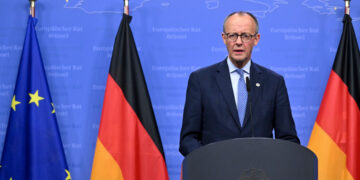
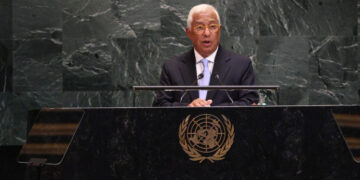

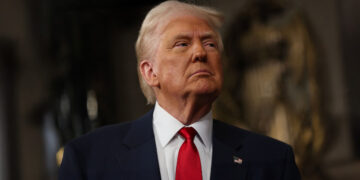
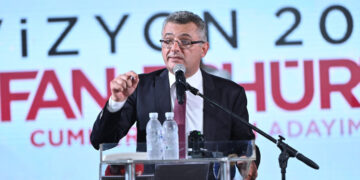
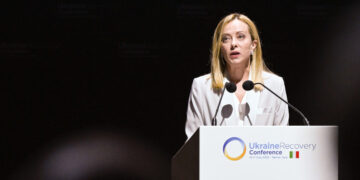


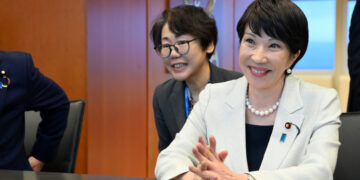


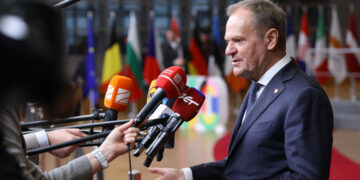
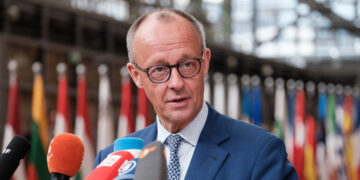
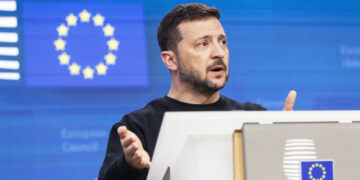















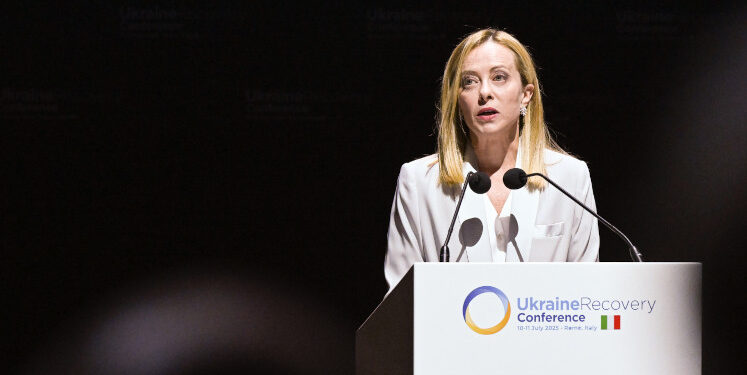




Discussion about this post